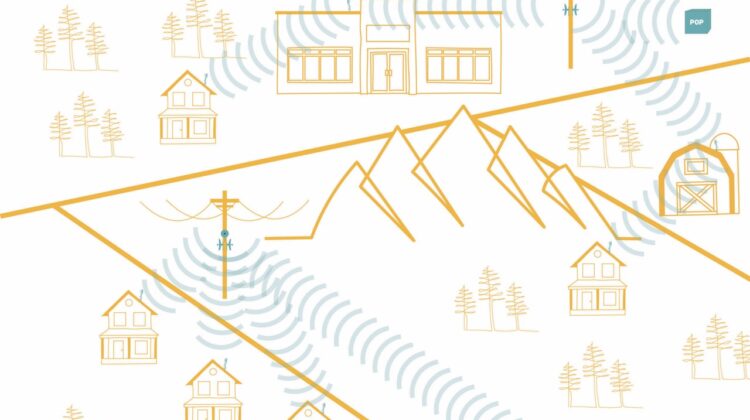
A publicly traded satellite operator is working with Mage Networks to help power reliable internet connectivity for Canadians living in rural areas.
Telesat and Calgary-born Mage Networks have signed a Memorandum of Understanding for Telesat Lightspeed Low Earth Orbit satellite services.
As per the agreement, Telesat and Mage will collaborate on integrating commercial and technical aspects of Telesat Lightspeed high-throughput and low latency capacity into its services portfolio.
“Mage Networks understands the hardships facing people living in remote communities that don’t have the same technological access that others do,” says Dr. Sayed-Amr El-Hamamsy, cofounder and chief executive of Mage Networks.
Together, Telesat and Mage intend to develop demand and traffic projections, as well as network performance criteria by market segment, and define optimal operating models.
“By integrating Mage Network’s hybrid solutions with Telesat Lightspeed LEO capacity,” El-Hamamsy continued, “we will be able to deliver reliable, redundant, affordable service to more people, in less time and at reduced cost.”
Through this collaboration, Mage Networks will expand broadband internet services to underserved communities in Canada, leveraging the Telesat Lightspeed Capacity Pool that was established through a partnership between Telesat and the Government of Canada.
“Integrating the Telesat Lightspeed capacity pool with the Mage Networks’ innovative services portfolio will be a powerful solution to bridge the digital divide in Canada and achieve universal connectivity for all,” stated Michele Beck, Senior Vice President of sales for Telesat in Canada.
Designed from inception to serve mission-critical connectivity requirements for enterprise and government users, the Telesat Lightspeed network is positioned to deliver connectivity in 2027.
Mage Networks was established in 2017 by El-Hamamsy and Dr. Ahmed Zaki. The firm is known for MagiNet, which unlike cellular towers use a series of interconnected nodes.
“We place as many nodes as needed, wherever they are needed to bring Internet access directly to a specific area and guarantee no data rate loss,” the company explains online. “That means that even obstacles like trees or buildings—even the weather—do not impact the signal strength and you’ll have reliable high-speed Internet.”
The company has built and operates five networks in Canada, and owns more than 50 patents across Canada, the US, and Europe.



Leave a Reply